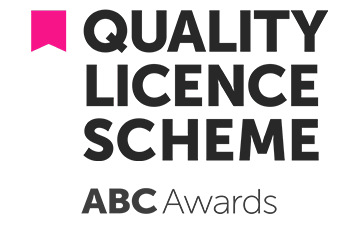

Our new and exciting Health and Social Care Diploma course has been specifically designed for those students who have an interest in or who work in the health and social care sector.
Health and social care encompasses a wide range of services and cuts across all sectors, including public, private and voluntary. It includes services within hospitals, clinics, care homes, medical and dental practices, emergency services, complementary medicine, and more.
Our Health and Social Care course is the ideal course for anyone who is looking to pursue a career within the health and social care sector. This includes jobs such as nursing, social workers and other types of health care workers.
The course covers key aspects of the field in order to sufficiently prepare you to work in the health and social care sector, or to enhance your confidence and skills within your existing role.
Lesson 1: Promote communication in health, social care or children’s and young people’s settings
The unit explores the central importance of communication in such settings, and ways to meet individual needs and preferences in communication. It also considers issues of confidentiality.
Lesson 2: Engage in personal development in health, social care or children’s and young people’s settings
The unit introduces the concepts of personal development and reflective practice which are fundamental to such roles, and ways to implement these.
Lesson 3: Promote equality and inclusion in health, social care or children’s and young people’s settings
The unit introduces the concepts of equality, diversity and inclusion which are fundamental to such roles.
Lesson 4: Principles for implementing duty of care in health, social care or children’s and young people’s settings
The unit introduces ways to address the dilemmas, conflicts or complaints that may arise where there is a duty of care
Lesson 5: Principles of safeguarding and protection in health and social care
This unit introduces the important area of safeguarding individuals from abuse. It identifies different types of abuse and the signs and symptoms that might indicate abuse is occurring. It considers when individuals might be particularly vulnerable to abuse and what a learner must do if abuse is suspected or alleged.
Lesson 6: The role of the health and social care worker
This unit provides the learner with the knowledge and skills required to understand the nature of working relationships, work in ways that are agreed with the employer and work in partnership with others.
Lesson 7: Promote person centred approaches in health and social care
This unit provides the learner with the knowledge and skills required to implement and promote person centred approaches.
Lesson 8: Promote and implement health and safety in health and social care
This unit provides the learner with the knowledge and skills required to promote and implement health and safety in their work setting.
Lesson 9: Promote good practice in handling information in health and social care settings
This unit covers the knowledge and skills needed to implement and promote good practice in recording, sharing, storing and accessing information.
Lesson 10: Provide support to maintain and develop skills for everyday life
The unit provides the learner with the knowledge and skills required to work with individuals to retain, regain and develop skills for everyday life.
Lesson 11: Facilitate learning and development activities to meet individual needs and preferences
This unit provides the learner with the knowledge and skills required to support individuals to plan, take part in and evaluate learning or development activities.
Lesson 12: Support individuals to access and use services and facilities
This unit provides the learner with the knowledge and skills required to support individuals to select, use and review services and facilities.
Lesson 13: Facilitate person centred assessment, planning, implementation and review
This unit provides the learner with the knowledge and skills required to facilitate person-centred assessment, planning, implementation and review.
Lesson 14: Support Individuals With Specific Communication Needs
This unit provides the learner with the knowledge and skills that address personal interaction and the use of special methods and aids to promote communication.
Lesson 15: Support use of medication in social care settings
This unit assesses support for use of medication in social care settings. It covers broad types, classifications and forms of medication, as well as safe handling and storage. It addresses practical support for use of medication that reflects social care principles and values, and includes the need for accurate recording and reporting.
This course has been accredited by Online Academies. On successful completion of this course you will be able to download or print off a PDF of your Online Academies Certificate (please note: you will also be given the opportunity to have a hard copy of the certificate printed off and posted out to you for a small additional charge). If you would like to view a sample of the certificate, please click here.

Online Academy work with Quality Licence Scheme (Quality Licence Scheme). The Quality Licence Scheme is part of the Skills and Education Group, a charitable organisation that unites education and skills-orientated organisations that share similar values and objectives. With more than 100 years of collective experience, the Skills and Education Group’s strategic partnerships create opportunities to inform, influence and represent the wider education and skills sector.
At the conclusion of each module there is a multiple choice question assessment. This will help you remember the main points of the lesson and act as a check that you have retained the essential knowledge and understanding of that particular section. The results can be seen instantaneously and you can correct wrong answers. When the result is satisfactory you can progress to the next module.
Once you have successfully completed all the modules for your course you will be awarded:
A Diploma issued by Online Academies



